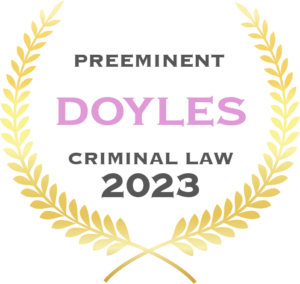Overview
Some key changes to traffic legislation have recently come into effect in NSW with the enactment of the Road Transport Legislation Amendment (Road Safety) Act 2018. The amendments are a key priority of the Road Safety Plan 2021. The plan, best known as the Government’s Towards Zero initiative, aims to address key trends and trauma risks on NSW roads.
Key changes
The amendments have facilitated three key changes to the existing legislation. They have added cocaine to the list of prescribed illicit drugs, strengthened the penalties for driving under the influence (DUI) and allowed for the implementation of technology which detects illegal use of mobile phones.
Mobile phone use
The new legislation paves the way for the implementation of new technology to detect illegal mobile phone use.
Section 300 of the Road Rules 2014 outlines that it is illegal for a driver to use a mobile phone while the vehicle they are driving is moving or is stationary (but not parked). If drivers are caught using a mobile phone they can face a fine and the loss of 5 demerit points.
The new legislation opens up the possibility for the implementation of cameras that could detect illegal mobile phone use and automatically issue an infringement notice. NSW is the first jurisdiction in Australia to introduce this legislation. The legislation was developed following the success of a Victorian trial in 2017 which used a red-light-style camera to detect 272 instances of illegal mobile phone use in just five hours.
Illicit drug classification
Cocaine is now included in the list of illicit substances which drivers can be tested for during Mobile Drug Tests (MDTs).
MDTs can also detect the existence of ecstasy, cannabis and methamphetamine (including speed and ice).
The length of time that illegal drugs can be detected by an MDT depend on a vast array of factors including the amount that was consumed and the frequency of use. Typically, cannabis can be detected in saliva up to 12 hours after use, while stimulants can be detected for one to two days after use.
DUI penalties
It is an offence to use (or attempt to use) a vehicle while under the influence of alcohol or other drugs. A DUI offence differs from the offence of driving with a prescribed concentration of alcohol (PCA). To secure a conviction for DUI, the prosecution must prove beyond reasonable doubt that the driver was under the influence of alcohol or a particular drug.
A DUI charge may be brought if certain procedures relating to PCA offences haven’t been followed. A common example of this is if the police have failed to breath test the driver within two hours of the incident.
The penalty for DUI has significantly increased under the new reforms. Under the new legislation, the maximum penalty for DUI (as a first offence) has doubled to 18 months imprisonment, and the maximum fine has increased to $3,300. The penalty will accompany an automatic disqualification period of three years which the court may reduce to a minimum of 12 months.
In circumstances where it is an individual’s second or subsequent offence, the penalty will increase to two years imprisonment, with a maximum fine of $5,500.
Key Takeaways
- The "Towards Zero" NSW initiative seeks to reduce road trauma through the Road Safety Plan 2021, including legislative amendments effective from the Road Transport Legislation Amendment (Road Safety) Act 2018.
- Key changes include adding cocaine to the list of drugs for Mobile Drug Tests (MDTs), strengthening DUI penalties, and deploying technology to detect illegal mobile phone use while driving.
- The reforms aim for enhanced road safety by addressing drug driving, mobile phone use, and DUI offenses, with significant penalties for violations to deter unsafe road behaviors.
Appealing licence suspensions
In NSW, licence suspensions can be imposed for a variety of offences. For example, if an individual is caught exceeding the speed limit by more than 30km/h the RMS has the discretion to impose a licence suspension for three months. Similarly, if an individual is caught exceeding the speed limit by 45km/h, the RMS has the discretion to suspend their licence for six months. Police also have the ability to impose immediate licence suspensions (usually for drink driving or speeding). If an individual has received a licence suspension in one of the above circumstances, they may be able to avoid the suspension, or have it drastically reduced upon a successful appeal.
When considering an appeal, the court is not concerned with whether the offence has been committed. Instead, the court will consider a range of factors to determine whether the licence suspension is appropriate. The factors that can be considered include the circumstances of the offence, the individual’s traffic record (prior to the offence), their character and their need for a licence.
Individuals only have 28 days to lodge their appeal after receiving their suspension notice.
If you would like assistance lodging an appeal, would like more information on the reforms discussed above or need advice or representation please contact Hamilton Janke Lawyers 24 hours a day, seven days a week on 02 4038 1666 (business hours) or 0422 050 502 (around the clock/after hours).
Written By

James Janke
James Janke is founding partner at Hamilton Janke Lawyers, and has more then decade of experience as a Criminal Defence Lawyer. Admitted to both the Supreme Court of New South Wales and High Court of Australia



